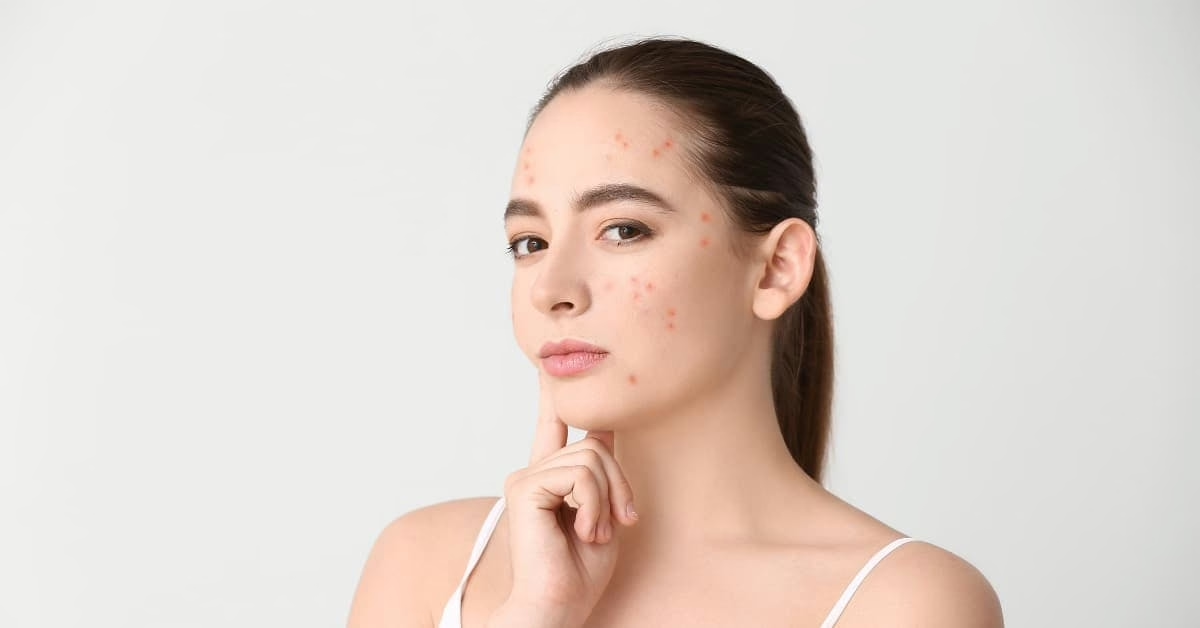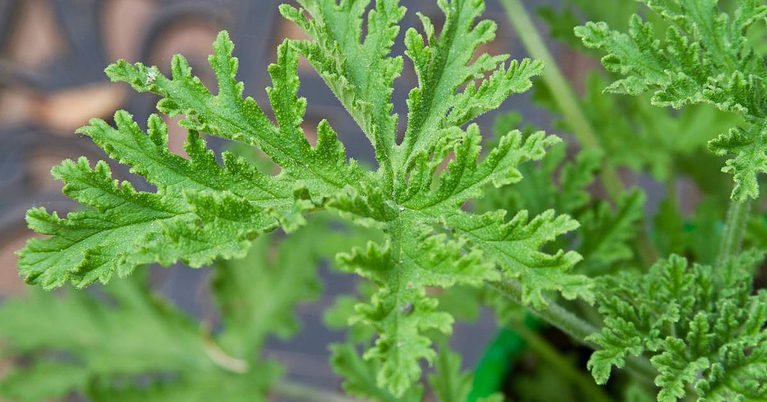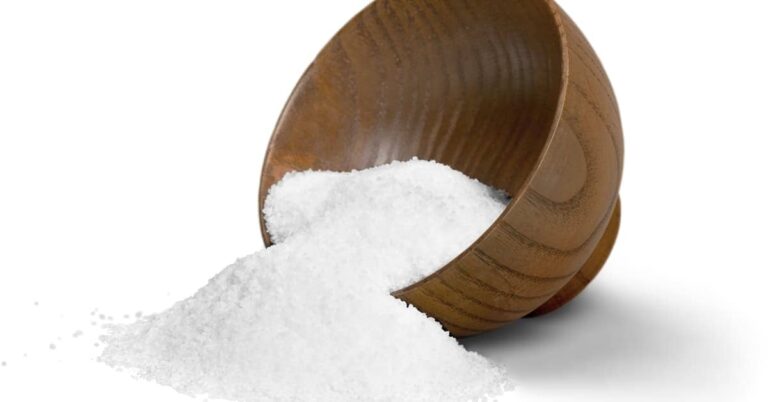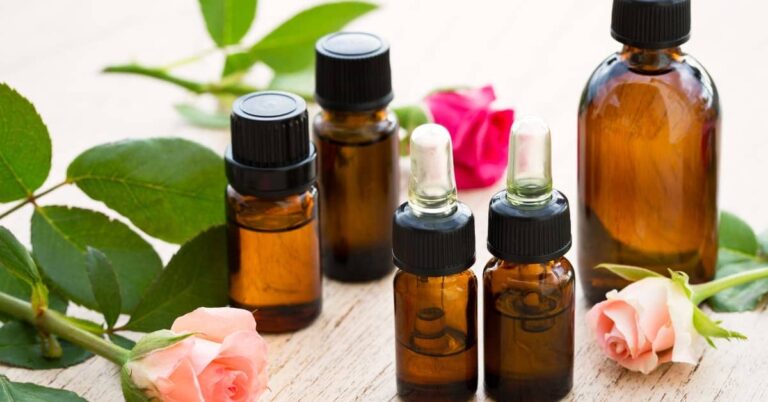How Pollution Causes Acne and What to Do About It
We all know that keeping our skin cleansed and moisturized is key to maintaining a clear complexion. But it’s not just about what we do; many outside factors can affect our skin and cause acne. From weather changes to UV rays, and yes, even pollution – these elements can significantly impact our skin’s health.
One of the most significant dangers pollution poses to our skin is an overload of free radical damage. City living exposes you to air pollution, which is laden with free radicals. Our skin serves as the first line of defense against these harmful molecules, but it inevitably bears the brunt of this assault. Constant exposure to free radicals can impair cell function, leading to compromised skin health. This daily damage causes inflammation and poor cell performance
What is Acne?
Acne is a common skin condition that results in the formation of pimples or “zits.” It can include whiteheads, blackheads, and red, inflamed patches of skin such as cysts.
Alternative Names
- Acne vulgaris
- Cystic acne
- Pimples
- Zits
What Causes Acne
Acne develops when tiny holes on the skin’s surface, known as pores, become clogged. Each pore opens to a follicle, which contains a hair and an oil gland. The oil produced by these glands helps remove old skin cells and keeps the skin soft.
When these glands become blocked with a mixture of oil and skin cells, a plug, or comedone, forms. If the top of the plug is white, it’s called a whitehead. If the top of the plug is dark, it’s known as a blackhead.
Bacteria trapped in the plug can trigger an immune response, leading to pimples. Acne that forms deep within the skin can result in hard, painful cysts, a condition known as nodulocystic acne.
Acne is a complex issue influenced by multiple factors, making it difficult to identify a single cause for each case. However, research indicates that pollution can significantly worsen or even trigger acne.. Urban dwellers are particularly susceptible to pollution compared to those living in the cleaner, open spaces of the countryside.
How Does Pollution Affect Skin?
Air pollution releases tiny particles of gases, such as carbon monoxide, sulfur dioxide, and nitrogen, into the air. We know these gases are dangerous to breathe in, but did you know they can also wreak havoc on your skin? Pollution manifests as debris and dust, and this physical dirt is bad news for clear complexions. When this muck lands on your face, it can clog your pores, leading to acne. Pollution doesn’t just stop at clogging pores; it also causes free radical damage, making your skin age faster. If your goal is to keep your skin smooth and youthful, this is bad news all around.
Pollution and Acne: How Are They Connected?
Pollution and acne have a strong connection. Even if you follow a healthy diet and a proper skincare routine, your skin can still suffer from acne due to daily exposure to pollution. The toxins in the air you breathe can significantly damage your skin. Here’s how pollution contributes to acne:
- Reduces Natural Vitamin E Levels
Vitamin E is essential for protecting your skin against external damage, including pimples, age spots, sunburn, and skin cancer. Continuous exposure to polluted air depletes the Vitamin E levels in your skin, leaving your delicate pores vulnerable to oxidative damage.
- Oxidizes Sebum Stores
Pollution causes oxidative damage to your skin, gradually reducing its natural moisture. Oxidation accelerates skin cell damage, leading to faster aging, especially for those living in crowded and polluted cities. This oxidative stress causes inflammation, which can result in acne.
- Blocks Skin Pores
Microscopic dust particles in polluted air can clog your skin pores, leading to blackheads. If you wipe your face with a wet tissue after being outside, you’ll notice the grime accumulated on your skin. Severe pollution can cause pus-filled acne on your face and body.
- Triggers Reactions with Skincare Products
Many skincare products contain squalene oil, derived from rice bran, olive, and other natural sources. Squalene is a natural antioxidant, but when exposed to polluted air, it converts to squalene peroxide, which can cause severe acne over time.
Understanding the impact of pollution on your skin can help you take proactive measures to protect it, ensuring a clearer and healthier complexion despite living in polluted environments.
Combatting Pollution Acne
Living in city and town centers, where traffic congestion is common, means you’re more exposed to air pollution. But don’t worry – you don’t have to move to the countryside to keep your skin crystal clear!
- Look After Your Skin Barrier
When fighting acne, we’re often guilty of waging war on our skin with harsh ingredients. While proven acne-fighters like salicylic acid and benzoyl peroxide can help, overusing them can damage your skin barrier. This barrier is your skin’s first line of defense, and keeping it healthy is crucial for clear, smooth skin. Pollution also damages your skin barrier, so it’s essential not to weaken it further.
Adding ingredients that support your skin barrier is a sure-fire way to keep it healthy. Look for cleansers, serums, and moisturizers with ceramides and lipids – these will help build up that essential defense. Niacinamide can soothe your skin barrier and make your pores look smaller, while antioxidants will fight off free radical damage. Remember, a happy skin barrier means a glowing, clear complexion.
- Cleanse…and Cleanse Again
If you live, study, or work in a busy city or town center, avoiding pollution is tough. You might be diligent about cleansing, but did you know that one cleanse often isn’t enough?
Double cleansing is more than just an Instagram trend; it’s a guaranteed way to remove every last bit of makeup and grime. If you aren’t cleansing your skin properly, muck and makeup build up, creating a recipe for acne.
Start with a cleansing oil or lightweight carrier oil. Rosewater is also great for removing makeup and can replace makeup wipes (which aren’t good for your skin). This first step cleans the surface of your skin. The second cleanse, using your usual gentle cleanser, will wash away anything left over and clean out your pores.
- Ditch the Pore-Cloggers
Since pollution particles can invade your pores, the last thing you need is more pore-clogging – aka comedogenic – ingredients. Even double cleansing might not fully clean out your pores if you use comedogenic products.
Comedogenic ingredients can be found in many face products, from makeup to self-tan and even skincare. Making some clever swaps can help keep your skin clear, making fighting pollution pimples much easier. Avoid products with coconut oil, cocoa butter, and cetyl alcohol.
Instead, opt for lighter, hydrating ingredients like hyaluronic acid. Many makeup products, like primers and foundations, now contain skincare ingredients, enriching your skin while you glam up.
Skincare Tips for Acne in Polluted Environments – A Scientific Study
Managing acne can be tricky, especially in polluted environments.
Experts have some helpful tips based on the scientific study conducted firstly, by a team of five Asian and three European dermatology experts reviewed existing literature and described current acne treatment practices in their respective countries. As per the study,
in Asia, dermatologists follow global guidelines like those from the Global Alliance or the American Academy of Dermatology to treat acne. However, some treatments can disrupt the skin barrier, which is particularly problematic for Asian skin as it tends to be more sensitive than Caucasian skin. There is also a growing concern about antibiotic resistance due to the long-term use of topical antibiotics, prompting a search for alternative treatments.
Many Asian dermatologists are now using ingredients that help shed dead skin cells, such as lipohydroxy acids, glycolic acid, and salicylic acid. They also use anti-inflammatory ingredients like ketones, aldehydes, and niacinamide, and sebum regulators, often in combination with benzoyl peroxide (BPO) or retinoic acid. In China, traditional medicine is still popular for treating certain types of acne and is used alongside global guidelines. In Korea, traditional Chinese medicine is commonly used, along with essential oils, specifically tea tree oil, and products containing ketones or aldehydes that have anti-inflammatory properties.
Through this review, they highlighted the need for more epidemiological and clinical research. Subsequent studies provided evidence that acne symptoms might worsen in areas with high levels of ambient air pollution. Based on these findings, the authors recommend that individuals with acne should protect their skin’s natural barrier using emollients and UVA/UVB protection.
Basic Skincare Advice
1. Use Emollients and Sunscreen: Along with your acne treatments, it’s important to use moisturizers (emollients) and sunscreen. Avoid picking at your acne, as it can make things worse.
2. Protect Your Skin Barrier: Some detergents can disrupt your skin’s natural protective barrier, allowing bacteria to grow and weakening your skin’s defenses. Using gentle skincare products can help keep your skin barrier strong.
3. Preventing Inflammation and Pigmentation: Using skincare products designed for acne can create a barrier against pollution, help balance the skin’s natural bacteria, and control acne severity and post-acne pigmentation.
Complementary Treatments for Acne Medications
1. Moisturizers: Acne medications like isotretinoin, topical retinoids, and benzoyl peroxide can dry out your skin. Using a good moisturizer can help manage dryness and support your skin’s barrier.
2. Gentle Cleansers: Choose cleansers that don’t strip away your skin’s natural barrier. Avoid harsh scrubs and opt for mild medical cleansers to remove pollution from your skin.
3. Sun Protection: Some acne medications can make your skin more sensitive to the sun. Use sunscreen that protects against UVA and UVB rays, is noncomedogenic (won’t clog pores), and is suitable for oily skin. This will keep your skin moisturized while reducing oil and shine.
Staying on top of everything that can cause acne can be challenging. Many of us might not have known that pollution can cause or worsen it. Now that you do, you can confidently take steps to prevent it and achieve that glowing, clear complexion of your dreams!







